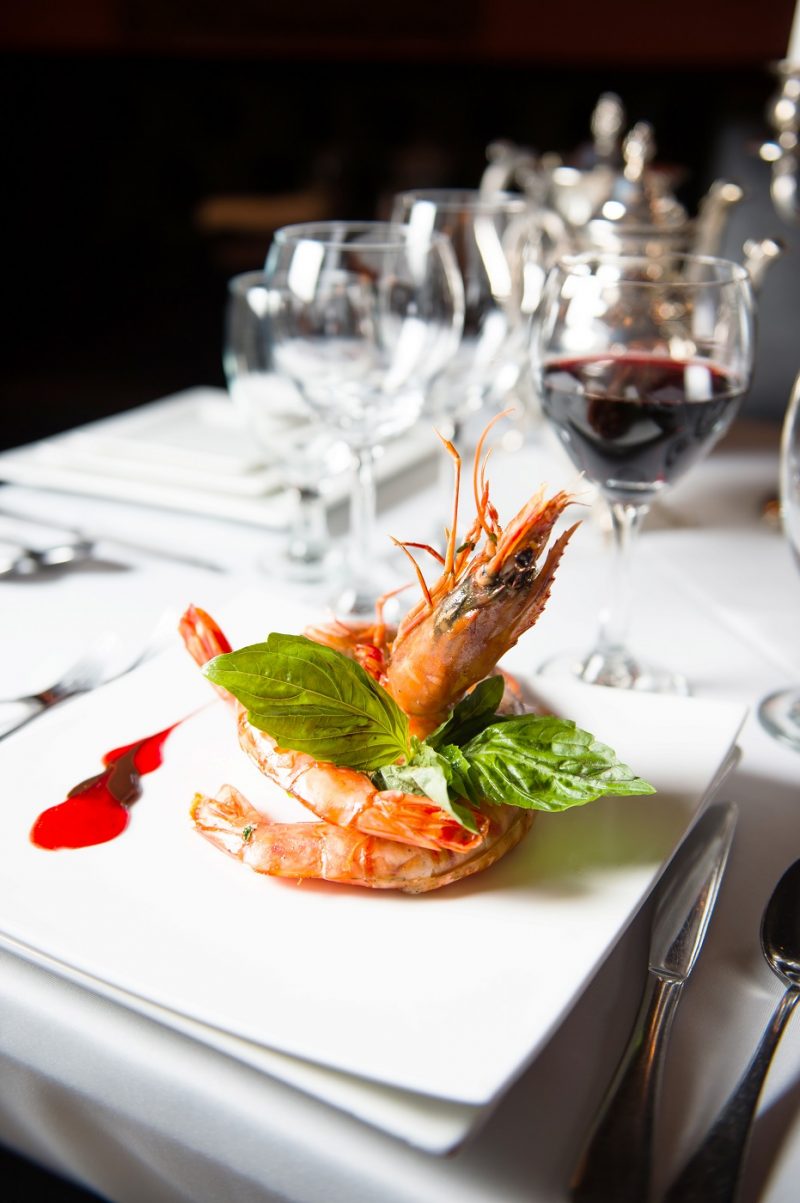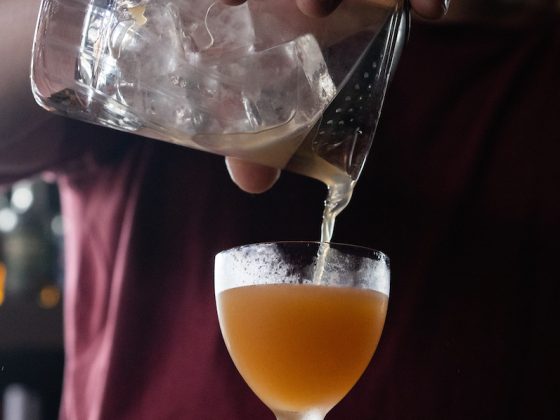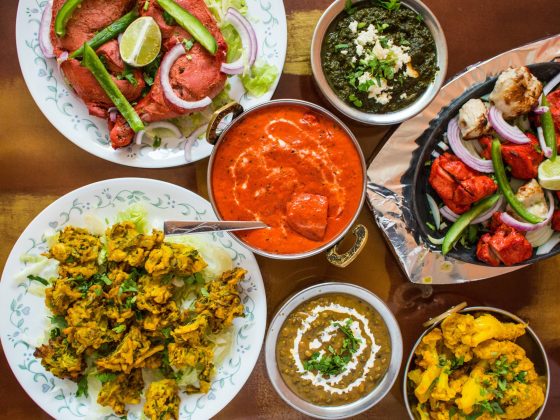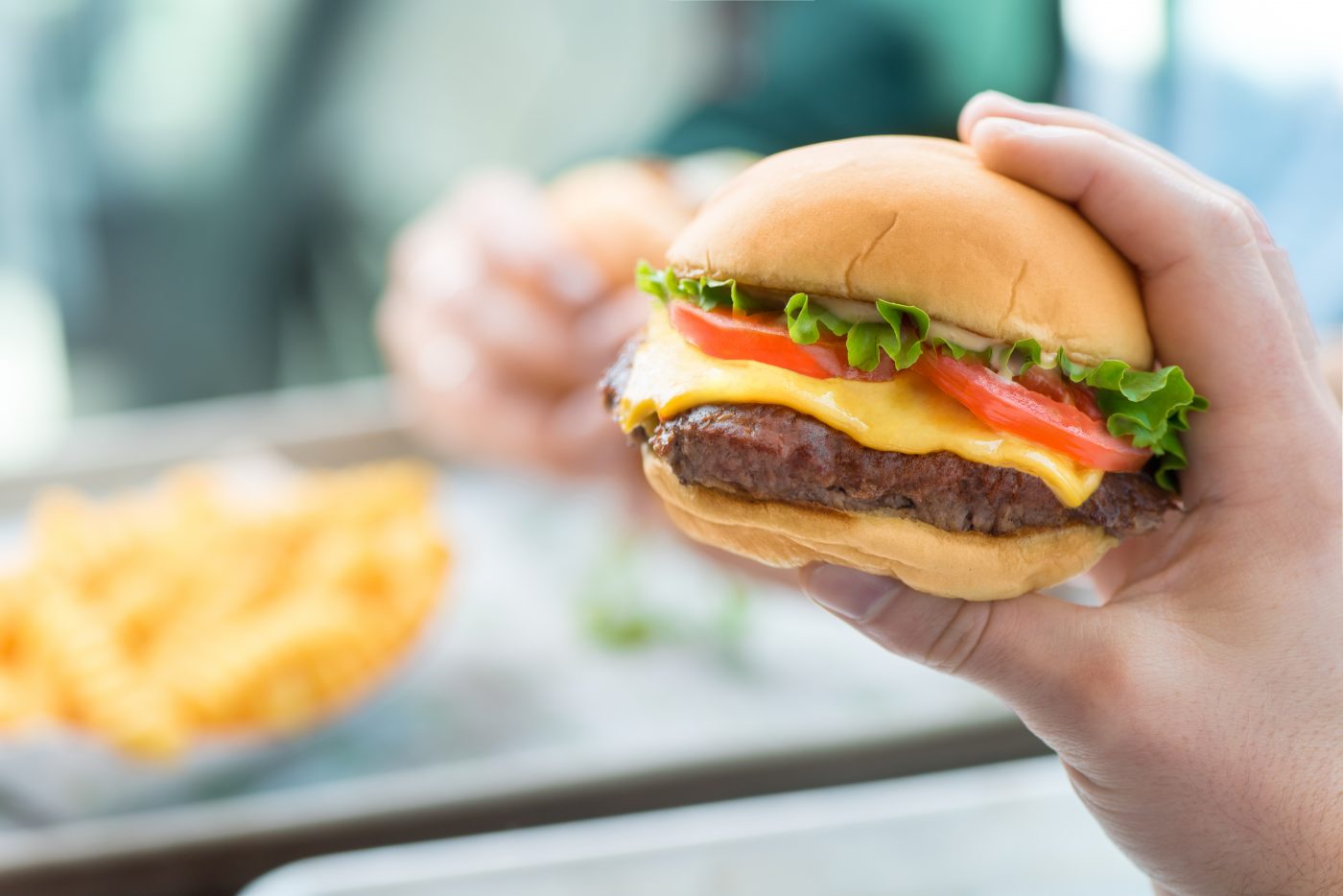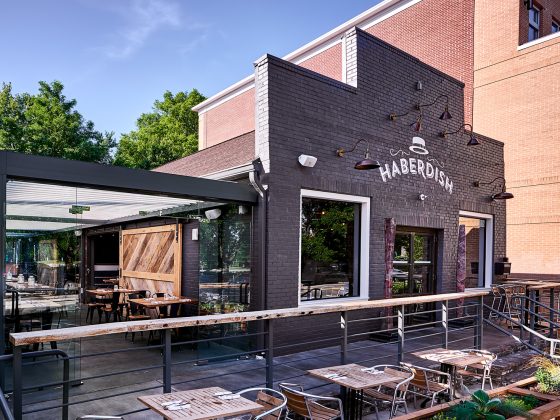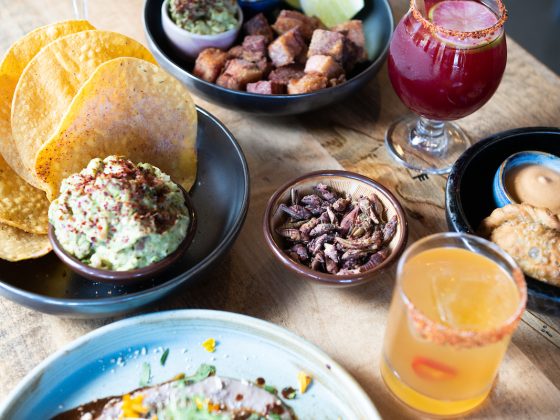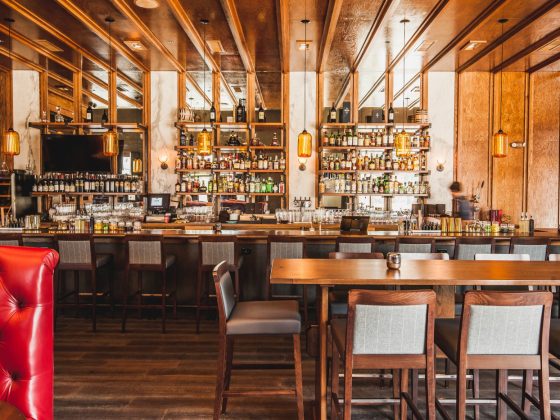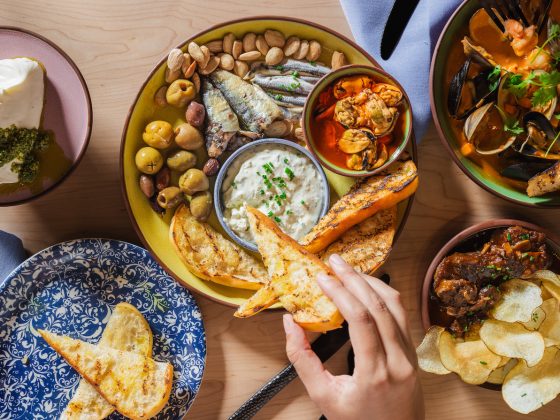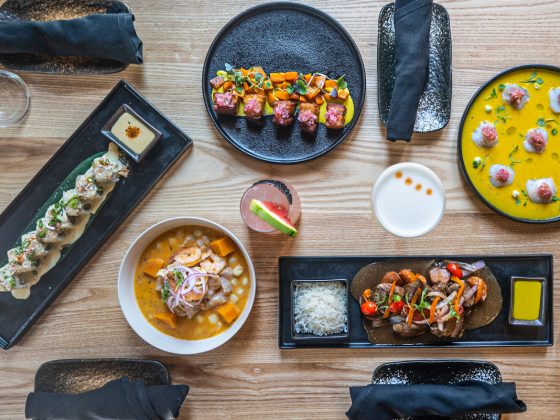As Chef Pasquale Caruso and I sit down, his Italian trattoria is calm and empty; a rare state for this cozy, 12-year-old restaurant. He sets a cup of espresso in front of me, a biscotti to accompany. Caruso is Italian; good conversation is always made over such provisions. I look around, and while the elegant fixtures remind me of beautiful dinners in the heart of Rome, the paintings remind me moreso of a gallery. What’s more: the humble old man in front of me, the owner of the restaurant, is also the artist who painted them all.
Caruso’s Restaurant serves up enticing and creative Italian dishes made with authentic ingredients, curated from all over the world. There’s no place in the Charlotte area quite like it… because there’s no one quite like the owner. I’m here this morning to find out where he sources his delicious bread (New Jersey) and his bufala mozzarella (Naples, naturally), but it’s the captivating origin of Caruso himself, I promptly discover, that’s the real story here.
Pasquale Caruso wanted to be a priest. And not just any priest—he wanted to be the Vatican’s lawyer, and being a chef was the furthest occupation from his mind. When his father died, Caruso was an altar boy in his small-town church just outside of Napoli (Naples). Young Caruso was inspired by his local priest, who visited sick children and families, always giving what little money he had to the poor. His mother, disapproving of this occupation—because, Caruso chuckles, she wanted him to actually make money and have children—had never worked a day in her life. And when his father’s life insurance and money were stolen by his business associates, she found herself providing for six children on her own.
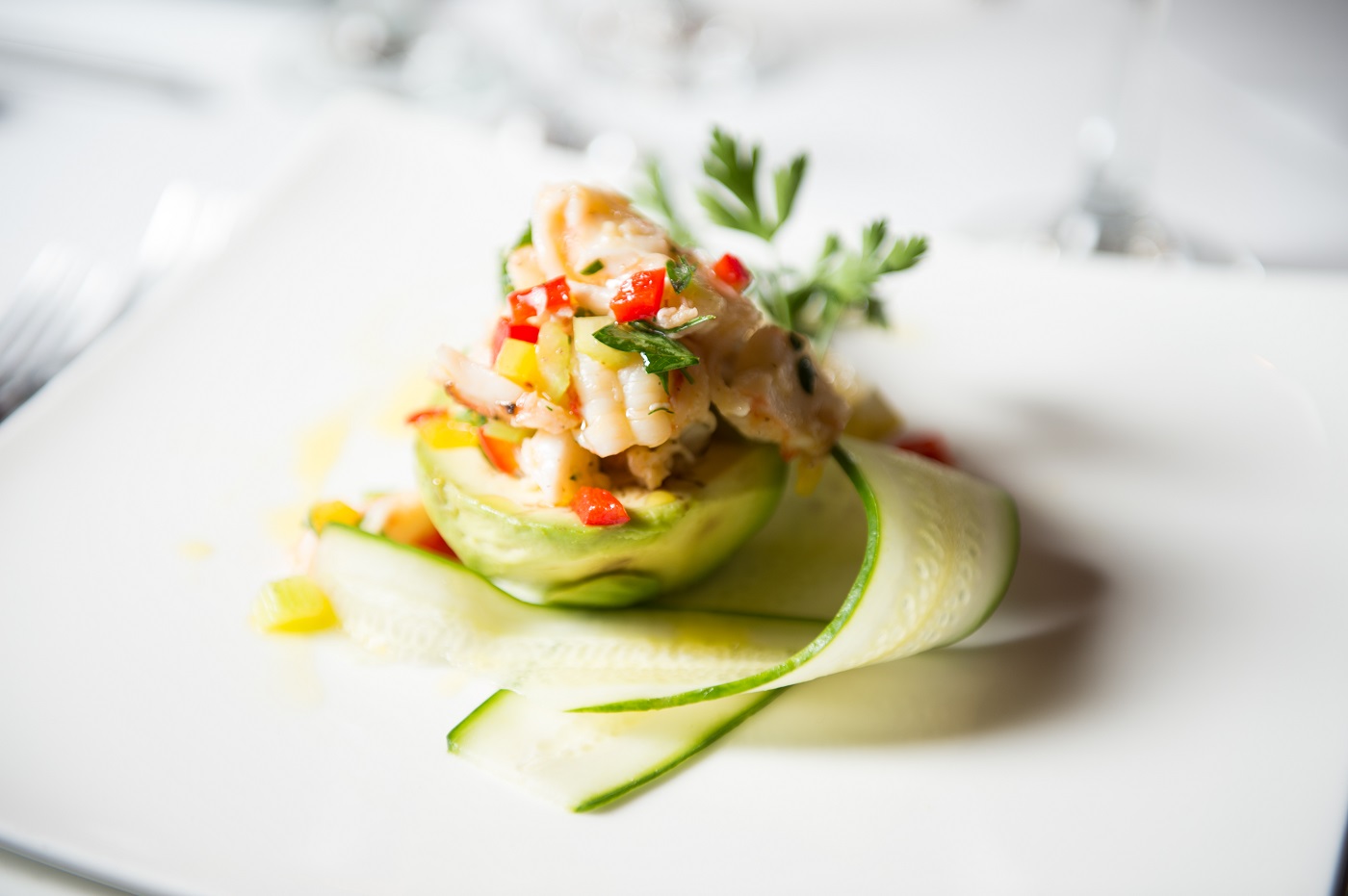
As she learned how to make bread, Caruso watched. On the days she worked, he ran home from school to put water on to boil for his mother, before running back to school to finish his class. When he didn’t know how to help her make something, he snuck over to neighboring kitchens where the doors were always open, and the women toiling away would reveal their culinary secrets. He still employs these techniques today, channeling the handiwork of rural Italy in every dish.
“We didn’t have a lot,” Caruso admits, “but we were happy together. We had dignity, and we had morality, and we never, ever showed others that we were starving.
My mother taught me a lot: Money helps you, but it is nothing. Love is what drives you in life.
And so he helped his mother at home with his siblings until he was eighteen. Leaving Campania for the first time, he headed north to study Theology. Seven years later, on the eve of taking his vows, Caruso realized that priesthood wasn’t for him. He’d become far more interested in government, and made his way into Germany and Switzerland, working for the Italian Embassy while learning the local languages.
Eventually Caruso moved back home to his family, involving himself in local politics, which caught the attention of his father’s old business associates. They approached him, now a man of power and repute, with bribery.
“We were not raised that way by my mother,” he explains. “These men took everything from us, including my father’s clothes,” he explains. “Of course I refused them.”
Caruso thought nothing of this refusal as he left the country to visit his brother in New York City. He had no idea that he would never be allowed to go home.
He arrived in the United States with one small suitcase in hand, and was immediately taken into custody. Thirteen years later, after he’d married and had his first child, he would learn why: His father’s conniving associates had tipped off the U.S. Government prior to his arrival that Pasquale Caruso was a communist. It was a blatant lie, but one that nevertheless prevented him from returning to his home and his family. With his brother’s aid, Caruso was allowed to stay in the United States.
A penniless accidental immigrant in a new country with a new language, Caruso knew he had to find work—and a tiny sign in a New York City pizzeria window seemed to offer that. Caruso completely winged the entire interview, he recalls, still wondering how he landed the job.
“They asked me where I’d learned how to make pizza, and I told them Naples—a lie!” He laughs. “The pizza came out square.”
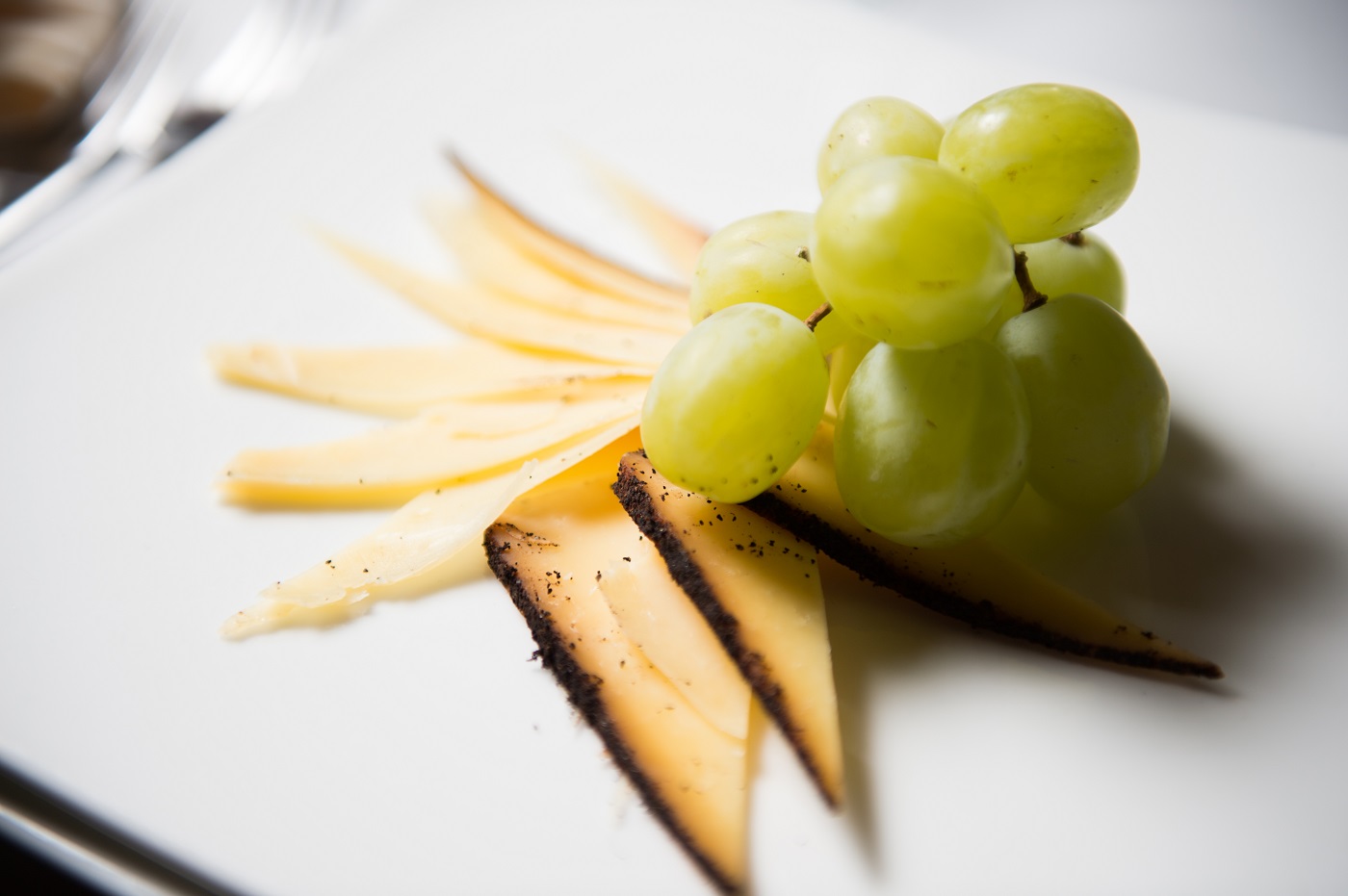
When he auditioned for his first chef position, he whipped up a Zuppa di Pesce, utilizing whatever ingredients were in front of him. That hole-in-the-wall taught him his strengths: Pasquale Caruso didn’t belong behind a pizza parlor counter, or in a church, or in politics. His place was in the kitchen. From then on, he worked from restaurant to restaurant, learning as he went and climbing the ranks. Eventually he landed in New Jersey, a head chef with the salary to match. With no formal schooling, he had to find ways to expand his wheelhouse: During his time off, the enterprising young man could be found in high-end restaurants cooking for free in order to learn from the best chefs in the city.
In 2005, an older, wiser, but no less energetic Pasquale Caruso moved to the Charlotte area to pursue his own restaurant venture, and was almost immediately diagnosed with cancer. He couldn’t afford to let his chemo treatments keep him from work, though: The 60-year-old spent countless afternoons in the empty space that would become his restaurant, stuccoing the walls until he was too sick to continue. The next day, he’d be back at it again.
Caruso knows what it means to have nothing, and to have everything. He’s spent his life living several different lives—and each of these has brought its own troubles. But Caruso doesn’t, as some of us might, see his hardships as haunting, dark times in his history.
“You don’t cry,” he says, grinning. “That’s what I learned from my mother. You have to keep moving.”
He did just that, continuing to slowly build Caruso’s into what it is now. His restaurant needed chairs, like the one I’m sitting in, so naturally he just studied upholstery. He researched the minutia of interior design, right down to a crash course in flower arrangements.
In my life, I’ve been so many things. I’ve always worked out of necessity since I was a child, and I’m grateful for that.
But it’s also nice to learn something for pleasure. I always want to be better.
Today, Caruso’s Restaurant is Mooresville’s tiny hidden gem. Beloved by the Lake Norman regulars who know about it, and showered with praise by the new patrons who discover it, Caruso’s modern Italian fare practically always demands a reservation. Like his classical oil paintings on the walls—the result of another hobby causally taken up by this savant little more than a year ago—his food is a beautiful thing to behold. They serve up classic Italian entrees, from pasta to seafood, along with other fine dining specialties. Every plate is a canvas bearing something both classic and new, something made by hands that have done too much to recount—far, far more than a chat over coffee can reveal. And they have still more to do.
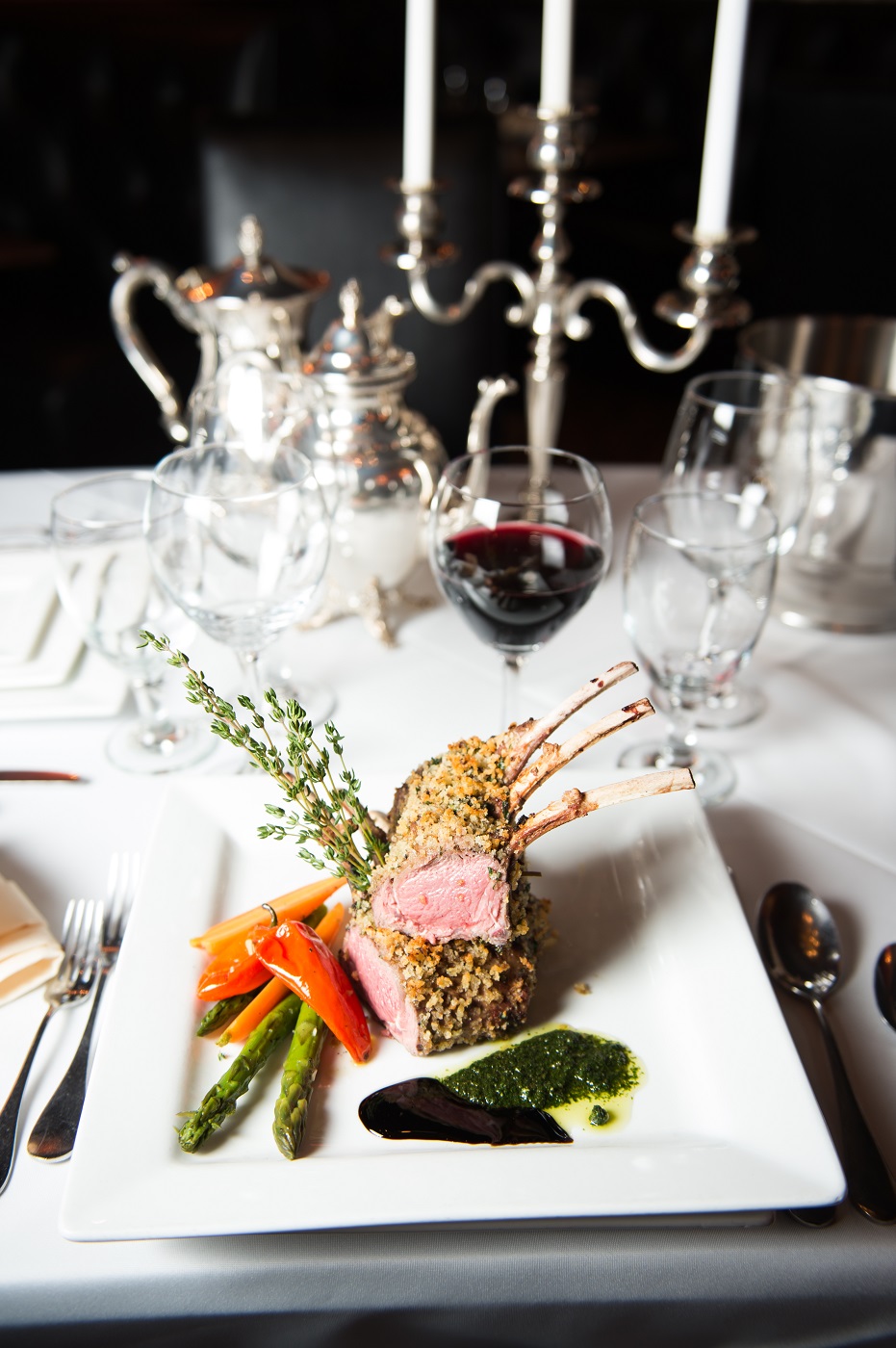
The espresso is finished, and all that remains of our biscotti is crumbs. Caruso and I have been talking for over two hours when he offers me lunch. I watch intently as he cooks, employing the lessons he’s just taught me. This quickly-prepared dish tells a story, and so does every painting: They’re like windows into another chapter, another life. When I stop in for dinner later, a new piece of art hangs on the wall, one he’d been sketching out at our last meeting. It’s the most beautiful canvas in the whole room. But that seems to be true of every new painting.


